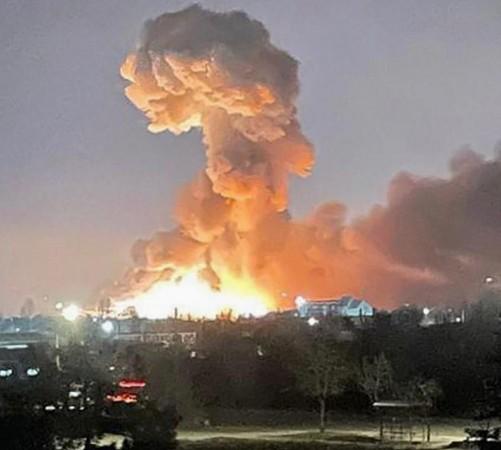The only positive consequence of a continuing conflict in Ukraine from a market standpoint is that the longer it goes the more likely it is to temper the recently conceived inflation fighting zeal of G7 central banks, even though the war itself is adding to the inflationary pressures, says Christopher Wood, analyst at Jefferies.
In his Greed and Fear commentary, Wood wrote that this political reality is already clear in the case of the ECB which is why the euro has weakened by 3 per cent against the US dollar since the Russian invasion began.

Still such a change of tightening stance will take longer with the Federal Reserve given the negative impact from the war in Ukraine is so much less. It is also the case that the latest US inflation data has again reminded investors of the inflation issue. US CPI inflation rose from 7.5 per cent YoY in January to 7.9 per cent YoY in February, the highest inflation print since January 1982. While core CPI inflation rose to 6.4 per cent YoY in February, the highest level since August 1982.
Motilal Oswal Institutional Securities said in a report that since the past two years, a chain of unprecedented events unfolded and disrupted the global economic equilibrium considerably. The mayhem caused by the pandemic in 2020 was followed by the Fed's decision to raise interest rates (to fight elevated inflation) and unwind ultra-easy monetary policy. While the world was grappling with these twin blows and as it was emerging from the latest wave of Covid-19 (Omicron), the Russia-Ukraine crisis has exacerbated the macro backdrop and caused commotion in global equity, bond and commodity markets with sharply elevated volatility.

This catastrophic event has the potential to reset the global strategic and foreign policy equations in the years to come given the multifold direct and indirect impacts it will unleash on global supply chains, energy dynamics, trade, flows, and defense priorities in an increasingly interconnected world. The evolving positions of major world powers and imposition of devastating sanctions on Russia may hasten the trend towards self-reliance across countries. Germany has articulated the need for elevated defense spending. As far as India is concerned, the overarching macro policy theme during the pandemic was SELF-RELIANT India (Atmanirbhar Bharat). The Russia-Ukraine conflict will accelerate the same, especially in defence, in our view, the report said.
At the beginning of CY22, what looked like a post-pandemic, potential demand recovery-led inflation risk is now increasingly turning into a supply shock-led inflation risk. Central banks will now have to perform the delicate yet crucial task of steering the economies through this commodity spike-driven inflationary headwind, while ensuring that demand does not fall off the cliff. Thus, in the very near term, the path of liquidity unwinding (taper) as well as interest rate hikes by the US Fed becomes a key monitorable.
The Government of India and the RBI too will need to balance the growth-inflation paradox even as the fiscal math presented in the Feb'22 Union Budget comes under pressure in the ever-changing global macro backdrop, the report said.
Commodity/Crude prices have skyrocketed and sent shockwaves in the system as sanctions on Russia have led to a severe disruption to the global supply chain, making it difficult for countries/companies to trade with Russia. This has practically crippled international trade especially for commodities where Russia remains a major global player. Moreover, the Ruble has depreciated by 44 per ent plus YTD leading to a contagion effect in global equity/currency/debt markets and accentuating a risk-off sentiment.
Autos, Consumer Durables and Cement have been the most adversely impacted sectors due to the spike in commodity and energy prices while metals, O&G have been the direct beneficiaries. Indirect beneficiaries include export-oriented sectors (IT and Healthcare) and non-crude linked sectors, the report said.
Sorbh Gupta, Fund Manager - Equity, Quantum Mutual Fund, said S&P BSE Sensex fell by -2.9 per cent on a total return basis in the month of February 2022. The broader market has underperformed the S&P BSE Sensex marginally, this month.
FPI outflow intensity has increased due to geopolitical risks and February has seen a sharp surge in FPI outflows of $4.7 bn (highest since March 2020). DIIs have been net buyers for the month of February 2022 to the tune of $1.4 bn and have absorbed a lot of selling pressure from the FPIs.
Gupta said the Russia-Ukraine conflict has increased inflation and supply chain challenges. Corporates will take another round of price hikes, but it will happen with the lag to ensure it does not curtail demand recovery.
(With inputs from IANS)

















